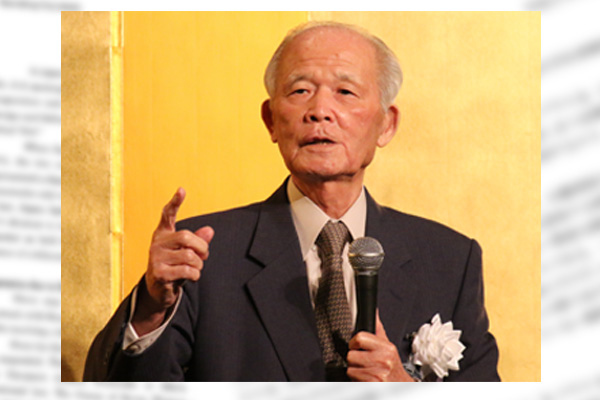Not a small number of people still misunderstand the defunct Democratic Socialist Party as positioned between the conservative Liberal Democratic Party and the leftist former Japan Socialist Party. This misunderstanding is fabulously ill-advised. Political parties cannot be classified by any simple measure like whether they are rightist or leftist.
In 1978 when the DSP was led by Chairman Ikko Kasuga and General Secretary Saburo Tsukamoto, Hiroomi Kurusu was dismissed as chairman of the Joint Staff Council of the Self-Defense Forces by then Defense Agency Director-General Shin Kanemaru of the LDP for his remark that if Japan came under a surprise attack, the SDF would be unable to launch defense operations but could take extrajudicial actions before the prime minister’s defense mobilization order. The remark was interpreted as running counter to the principle of civilian control on the SDF.
The DSP, which was believed as more leftist than the LDP, backed up Kurusu as its candidate for the Tokyo district in the next House of Councillors election for a straight fight with former dovish LDP lawmaker Tokuma Utsunomiya. Kurusu lost the election by a neck. Tsukamoto played a central role in fielding Kurusu as the DSP-backed candidate.
Memorable late night study meetings
While Marxism exerted great influence on Japan’s world of thought and generated various harmful effects on the postwar Japanese society, the most aggressive attack on Marxism came from the DSP rather than the LDP or the Komeito. Uniting prewar liberalist Eijiro Kawai’s students such as Tokyo Metropolitan University Emeritus Prof. Yoshihiko Seki who authored the DSP platform, labor activists who won struggles against ultra-leftists and intellectuals who were discontent with Marxism and sought to properly practice their beliefs, the DSP naturally held more militant energy than any other political parties in Japan. It was an embodiment of fighting spirits against wrongdoings without caring the appearance of right or left.
When devoting myself to dealing with overseas news at a news agency’s foreign news desk at the age around 30, I was invited to meetings of DSP leaders to explain about international issues. Attended by Suehiro Nishio, Ushiro Ito, Eiichi Nishimura, Eki Sone, Ikko Kasuga, Ryosaku Sasaki, Teiji Ikeda, Saburo Tsukamoto, Eiichi Nagasue, Keigo Ouchi and others, the meetings were spectacular, filled with intellectual tensions. Particularly, questions from young polemicist Tsukamoto were sharp.
Meiji University Emeritus Prof. Tadao Yoshida, a close friend of Tsukamoto, organized a study group for Tsukamoto. As an expert on foreign policy and defense issues, I joined the group along with Takeshi Muramatsu well versed in history and Imperial House affairs and economist Hiroshi Kato. The five-member group met frequently as Yoshida told the other four to gather at some venues at 9:30 p.m. At any meeting, the five had heated discussions over two hours before adjournment. I myself learned a lot at the group meetings.
Supporting JINF since its launch
Tsukamoto was a very human person. When hearing that a barber was deeply moved by Tsukamoto’s speech at a plenary House of Representatives session and murmured that he wanted this politician to be the prime minister, Tsukamoto grinned widely like a child. He continued to defend an ethically wrong politician candidate who should not be defended, while being aware that such action would work to his own disadvantage. Tsukamoto passed away as a Nichiren Buddhist sect follower. He gave his full support to our Japan Institute for National Fundamentals since its launch. We owe a lot to him of whom we are proud.
Tadae Takubo is Vice President of Japan Institute for National Fundamentals and a professor emeritus at Kyorin University.


